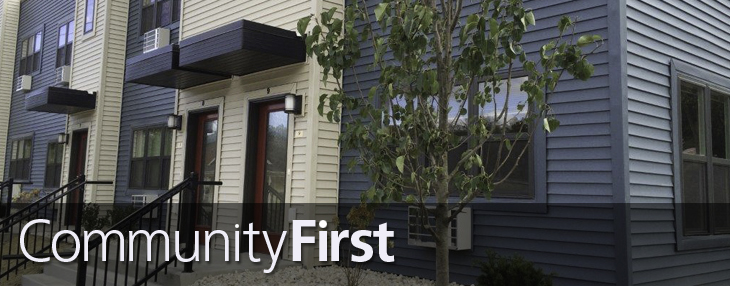
| Advisory Council Spotlight: Sean O’Brien, Director, Commercial Lending, Wisconsin Housing and Economic Development Authority | ||
In this Advisory Council Spotlight, we introduce Sean O’Brien, Director, Commercial Lending for the Wisconsin Housing and Economic Development Authority (WHEDA). WHEDA, which is currently celebrating its 45th anniversary, provides financing in support of single-family homeownership, affordable multi-family housing, small business, and agricultural development throughout Wisconsin. While the organization was created by the state legislature, it does not rely on state tax dollars. “Instead, we have a long history of quality lending practices and generating proceeds from the sale of revenue bonds, which has allowed us to fund many of our programs,” says O’Brien. “We’re always looking for new opportunities to fill a community or market need.” Some have used words like fluid, uncertain, and reluctant to describe the current Low-Income Housing Tax Credit (LIHTC) market. What kind of position does this put WHEDA in? How are developers responding? The LIHTC can be a complex equation with a lot of variables, and movements in the equity market are typical for the program. We have a talented and experienced staff, and we try to anticipate market factors to allocate the proper number of credits to ensure feasibility and long-term viability without over-subsidizing. WHEDA and our partners were in a tough position for 2016 awards because we had allocated credits to projects earlier in the year based on the assumption of higher equity pricing. So, when the market dropped rapidly at the end of last year, WHEDA allocated a small pool of additional credits to 2016 awards for developers who could document that they had been repriced by their investor. Our solution didn’t eliminate the entire gap, but it brought all parties closer to a position where the projects could move forward, and we have yet to see a 2016 award be returned. Because of this market dynamic, WHEDA extended the 2017 LIHTC application deadline by one month to give developers, syndicators, and other stakeholders more time and flexibility to take part. We’ve experienced a strong demand for the program in 2017, and overall, the reaction from developers to what we’ve done has been positive. You were appointed to your first term on the Community Investment Advisory Council just a few months ago. What are you most looking forward to? I’m looking forward to the learning opportunity and to helping the Community Investment Advisory Council carry out its critically important financing activities. WHEDA and the Community Investment Group of the Federal Home Loan Bank of Chicago share a lot of the same goals—in fact, WHEDA will be allocating the $5.4 million Capital Magnet Fund award it received this year to programs with objectives similar to those of the Council: down-payment assistance for homeownership and gap financing for affordable multi-family housing. I think I’ll be able to use my affordable housing and community lending experience to support the Bank’s initiatives, and I see this as a great opportunity to expand affordable housing options in Wisconsin. In November 2016, WHEDA was awarded $75 million in New Markets Tax Credits. How will these be used to advance economic development in Wisconsin? The 2016 New Markets Tax Credits will be used to generate job creation and economic activity throughout Wisconsin. We try to stretch these dollars as far as possible, with high-impact projects that serve as anchors for the community. For example, in our pipeline we have a historic hotel that would be an anchor for a blighted area of downtown Kenosha, and the developer has agreed to contract 20% of the construction work with Emerging Business Enterprises and to make $50,000 in charitable donations to entities that serve low-income communities. Another potential project we’re working on is in Whitewater, where a developer would not just put up a hotel, but would also put up a library and a health center that would be donated to the community after the seven-year compliance period. We’re also excited to take $20 million of those dollars and create two separate loan pools. One will be controlled by Impact Seven, a community development financial institution (CDFI) and a member of the Federal Home Loan Bank of Chicago. WHEDA will administer the second $10 million loan pool, which will be used to finance qualifying loans of up to $1 million dollars. We think this will provide more opportunity for small businesses across the state to use the New Markets Tax Credit Program. |
||
 |
| Federal Home Loan Bank of Chicago |
| 200 East Randolph Drive Chicago, IL 60601 www.fhlbc.com |
| This newsletter contains forward-looking statements which are based upon our current expectations and speak only as of the date hereof. These statements may use forward-looking terms, such as "anticipates," "believes," "expects," "could," "plans," "estimates," "may," "should," "will" or their negatives or other variations on these terms. We caution that, by their nature, forward-looking statements involve risk or uncertainty, that actual results could differ materially from those expressed or implied in these forward-looking statements, and that actual events could affect the extent to which a particular objective, projection, estimate, or prediction is realized. These forward-looking statements involve risks and uncertainties including, but not limited to, the risk factors set forth in our periodic filings with the Securities and Exchange Commission, which are available on our website at www.fhlbc.com. Copyright © 2017, Federal Home Loan Bank of Chicago. "Downpayment Plus," "DPP," "Downpayment Plus Advantage," and "DPP Advantage" are registered trademarks of the Federal Home Loan Bank of Chicago. "Community First" is a registered trademark of the Federal Home Loan Bank of Chicago. |
